By Alan Hubbard,
Cup your ear as you enter the portals of the SSE Wembley Arena and you will might hear the echoing roars of the crowds who have watched just about every conceivable sport that can be played indoors over the past 85 years.
It has been home from home for the Wembkey Lions ice hockey team, the Horse of the Year Show .and Olympic badminton, gymnastics swimming and boxing.
It is Britain’s most famous indoor venue, steeped in as much fistic history as that other atmospheric institution, the Royal Albert Hall..
Anyone who is, or has been anyone in British boxing over the past half century or more has fought there, from Howard Winstone and Dave Charnley through to Tyson Fury and Naseem Hamed via Henry Cooper, Lennox Lewis, Frank Bruno (17 times) Alan Minter (v Marvin Hagler), Lloyd Honeyghan , John H Stracey, Brian London, Billy Joe Saunders, Joe Bugner and oh so many more illustrious figures..
Once known as the Empire Pool,. Wembley Arena may no longer be he epicentre of British boxing with the advent of London’s O2, Manchester Arena and the Copper Box and is better known these days for pop concerts than pugilism; but it remains indelibly linked to the noble art.
This Saturday night it is tbe turn if arguably the world’s most promising young heavyweight prospect, Daniel Dubois, to walk the walk of the legends when he tops the action-packed Queensberry bill against Ghana’s Richard Lartey, aka the Lion of Africa.
It is a Wembley debut in his 11th pro contest for the thunder-punching South Londoner, whose ambition is such that en routeto the Arena he will be glancing across to its big sister, Wembley Stadium. believing that one day in the not too distant future he he will be starring there in the open air before a 100, 000 crowd in a world heavyweight title fight.
No doubt too he will be will give a respectful nod on his way to the dressing room to the photos on the walls of his heavyweight forerunners, not least Sir ‘Enry, who made 15 appearances there, including his swansong at 37 when he lost his Britishh and European titles controversially on the narrowest of points verdicts to the 16 years younger Joe Bugner.
Cooper then had a memorable exchange with referee Harry Gibbs, the sole arbiter.
Convinced, as were the majority present, that he had won Cooper walked over to Gibbs at the conclusion of fhe 15-rounder, proffering his hand. But Gibbs Gibbs brushed by him and instead raised the hand of Bugner.
“I thought I nicked it ‘Arry ,” Cooper complained. Cockney Gibbs.the best ref British boxing has ever had, sniffed and replied:”Champions don’t nick nuffin’ .”
WHILE AMIR KHAN ponders his future, running the gauntlet of scepticism and scorn which now clouds his career following the demeaning manner of his exit in his abortive challenge to the brilliant and unbeaten World Boxing Organisation (WBO) welterweight champion Terence Crawford last Saturday night in New York. he should not be considered anywhere near as shamed as the American heavyweight contender Jarell Miller, who failed a drugs test three times last week and is now ruled out of his title fight with Britain’s Anthony Joshua in New York on June 1.
The podgy Miller is the latest in a long line of boxers, notably heavyweights, who have resorted to doping, making it almost as endemic in the sport as it is in athletics and cycling.
It has been a gathering storm for some time and is now at a critical level.
Just last year Michelle Verroken, head of the advisory body Sporting Integrity, and the former head of UK Sport’s Anti-Doping Unit, warned that the lack of clarity around sanctions is putting boxers’ health in jeopardy and also risking a raft of legal suits being filed by fighters injured by opponents later proven to have doped.
“Instead of different standards operating from state to state, country to country, there should be one standard,” she said.
“Doping in boxing is dangerous, but it’s partly because of the seriousness of additional aggression or strength that might come from using steroids. There is also the prospect that somebody has been able to retain benefits of doping substances. There is evidence showing the retention of muscle memory and strength.
“Now is the time for sanctioning to take into account the impact of residual benefits. The sanction has to be long enough so they cannot return until the benefits are gone and a level playing field resumes. If not, we’ll continue to see people using doping substances because their opponent did.
“I’m sure it won’t be long before a case is brought against someone who does take that risk with someone else’s life. The health and safety of the opponent, and not just the offending athlete, is at risk in combat sports. I’m sure there will be at some point in time a legal case where somebody wants to have their opponent charged for fighting under the influence of drugs and potentially doing them harm.”
Verroken even suggested a fighter who accidentally kills a rival in the ring, and is then found to have doped, could be leaving themselves open to a possible criminal charge.”
Hall of Fame ptromoter Frank Warren is keen to highlight just how bad the adverse finding was for the heavyweight division given that he had spent the build-up to the bout accusing Joshua of doping.
“As a boxing fan it is very disappointing,” said Warren. “Here you have a guy who accused AJ of juicing and there he is, he’s found positive himself.
“He’s done. “It is not good for the sport and is not good for boxing. He has let the sport down and he has certainly let himself down.”
The same might be said iof Khan, though a death in the ring caused by a doped-up boxer would put the whole sport in jeopardy much more so than the shock surrender of a great warrior who may for once may have lost his nerve in the heat of battle.
Aty 32 Khan seems to have lost the nifty leg movement that was one of his trademarks. He was repeatedly off balance and inaccurate with his punches. He should retire now and listen to the sage conclusion of former world middleweight champion Andy Lee, one of BT’s pundits who said of his career:”In terms of boxing there are more yesterdays than tomorrows”.
Yet Khan now insists he can still win another world title. He is deluding himself. At best he can pick up a decent enough purse by meeting his long-time domestic rival Kell Brook. But it is a pairing that you might say is well past its Kell-by date. It is a contest that might sell well in Sheffield but would not interest American television networks who fork out the big money only for marquee match-ups.
This time two years ago it might have been a blockbuster but not now. Though doubtless Sky will over-hype it as one if the greatest domestic battles since the War of the Roses
Article courtesy of Alan Hubbard

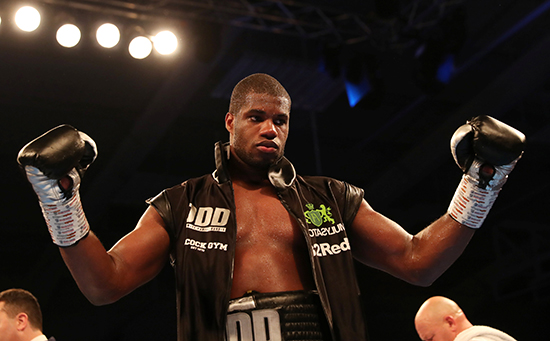


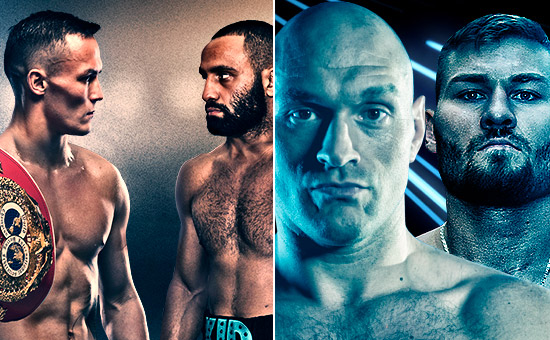
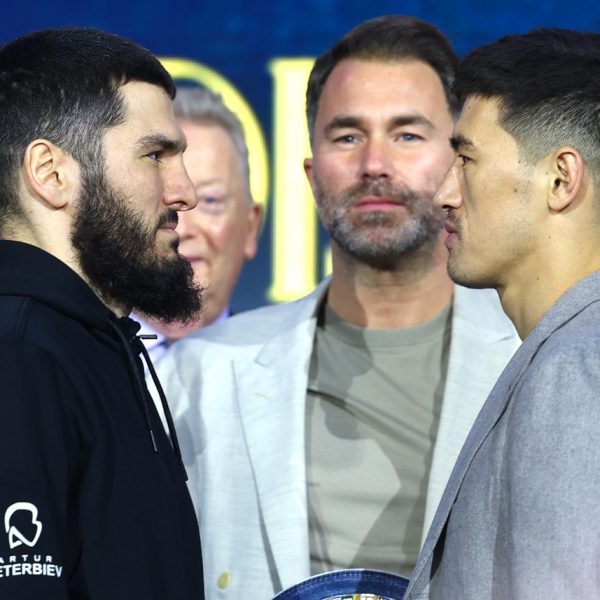
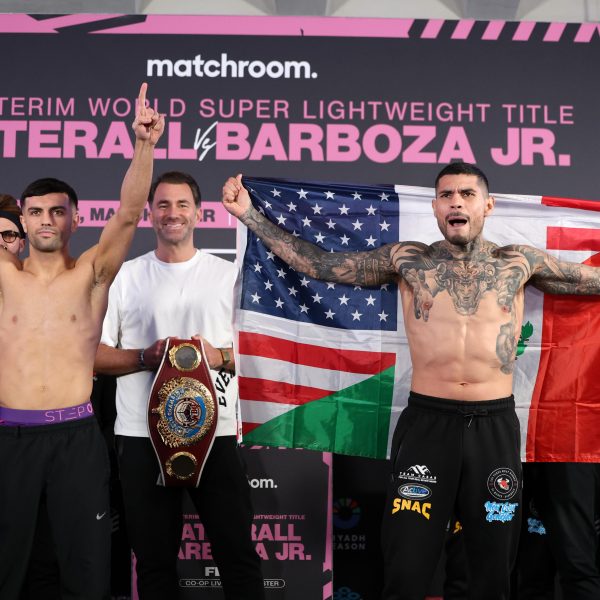
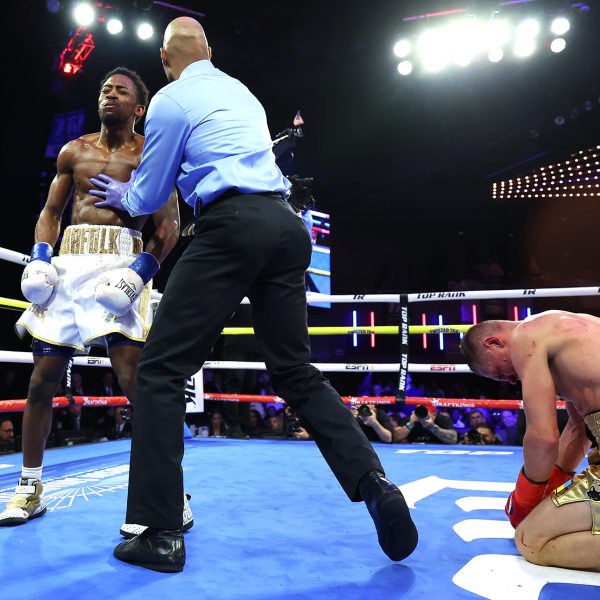


Recent Comments